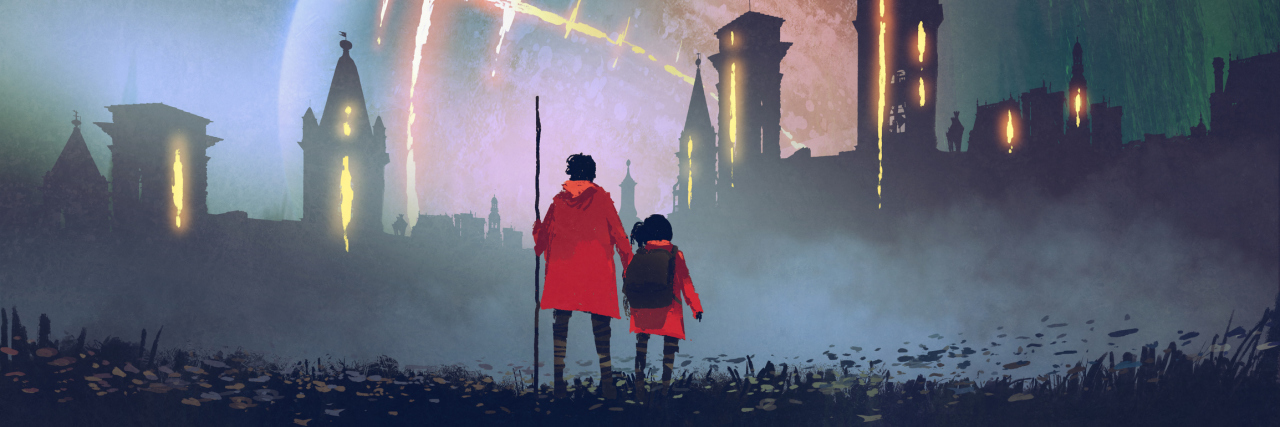4 Things I Would Tell a Young Person Just Diagnosed With Borderline Personality Disorder
I think it’s a good thing that borderline personality disorder (BPD) is getting diagnosed earlier and earlier nowadays. Something I worry about is the people who receive their diagnosis in their 20s who might feel they have a whole life of endless struggle ahead of them.
As someone entering late middle age whose BPD was diagnosed only recently, I want to tell these young people that, yes, you will have trials and struggles and sometimes you may fall. But at this later date in my life, I can look back at methods and activities that could have helped me — and the ones that are helping me now.
In no particular order, this is my advice:
1. Fight stigma however you can.
For now, there are two types of people in this world: those you can confide in about your BPD and those you can’t. This is the most careful choice you will make. Really get to know someone — are they empathetic, are they generally accepting of others’ differences, do they keep confidences? – before you confide in them. When you find these people you can talk to, you’re fighting the stigma of BPD in your own way.
I had to “come out” completely at work to protect my job. Now, I can produce podcasts, blog and host a YouTube channel — but only because of my status at work and my age. Most people can’t do this without penalty, although times are slowly changing. But with each person you can confide in, you fight the stigma. If people make unthinking remarks about people with mental illness and you challenge their perceptions, you are fighting the stigma.
2. Protect yourself.
Aside from figuring out who you can trust, make sure you know what your protections are at work, if you work. Recruit some trusted people to tell you when it’s time to disengage and take a break — most of the time you will know. Sometimes though, you may be in state where you don’t realize the effect you’re having on others. We can sometimes get inside our heads too much. It’s good to have a trusted friend stop you sometimes. Pay attention to the times you have acted out or dissociated. Do your best to learn your own cues.
Also, make sure you have a self-care plan when you need it and also consider having a self-care kit containing the things that calm you and make you happy when you’re feeling angry or down. I keep things around me like an Eeyore mug, a fidget box, photos of my family, etc.
3. Get involved.
I’ve been a real homebody the last few years, afraid to get out and meet people and become involved in something that would enrich my life. I finally found something — mental health activism in my community. I am around people like myself and I can be myself as well as help others and raise awareness of mental health issues.
But getting involved doesn’t have to be just mental health activism — it can be working for any cause you feel strongly about. It can be involvement in a faith community. It can be a book club or a MeetUp group. The possibilities are endless but this I know — isolation is one of the worst things you can do if you have BPD. I traded safety for human contact I desperately needed and it’s not a good tradeoff in the long run. Getting out and involved may be the bravest thing you will do. But once you find your tribe, those people will help your self-confidence and provide support for building the rest of your life. Please don’t try to go it alone.
4. Don’t quit on things that challenge you.
One of my biggest regrets is quitting Jiu jitsu 10 years ago after a string of injuries. I was using this martial art to challenge myself both physically and mentally. The sensei told me I had promise, but at my age (45 then), I should not expect to do the things I could so 10 or 20 years ago. After a string of back and ankle injuries, I left the dojo and I regret it to this day.
Regrets are the hardest thing to deal with when you have BPD. When you challenge yourself with whatever activity you choose, you will have a learning curve and setbacks are inevitable. But I would advise you — take a step back when you need to, but don’t quit. Your future self will thank you.
Whether you know it or not, you have a head start on dealing with BPD in your life. While BPD sucks in every way, you have time to plan a life with maximum fulfillment and minimal regrets. Good luck!
Getty Images photo via Grandfailure

